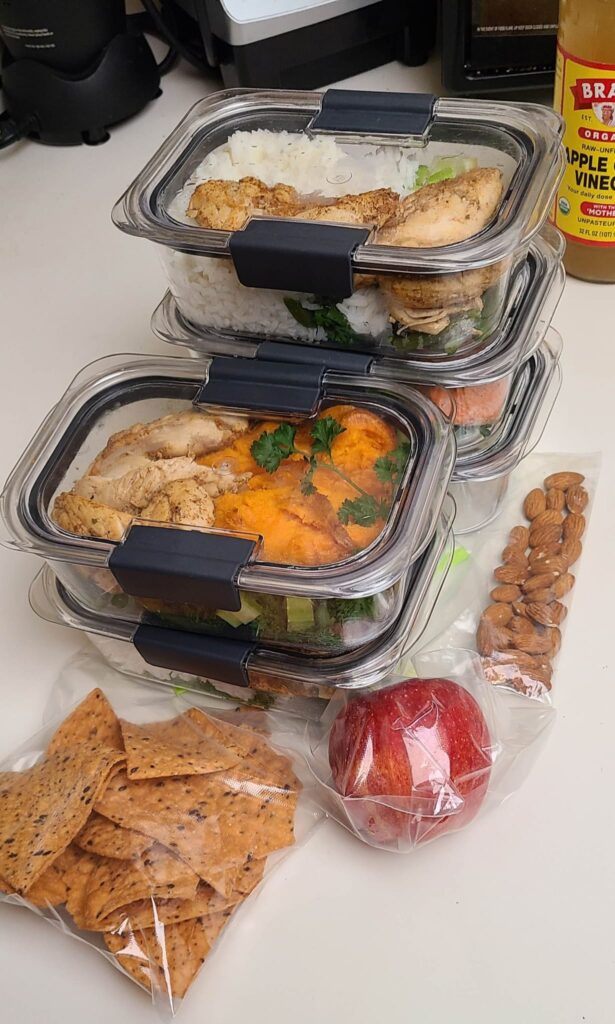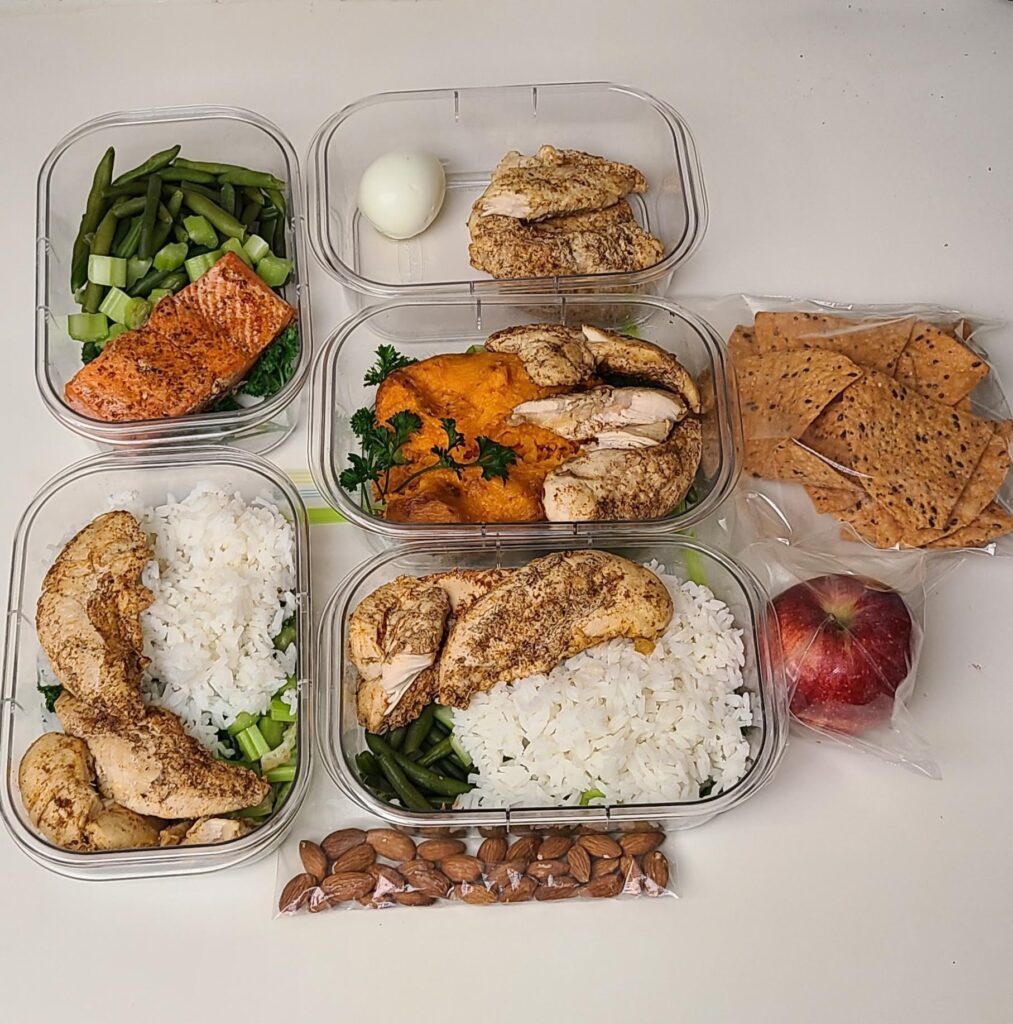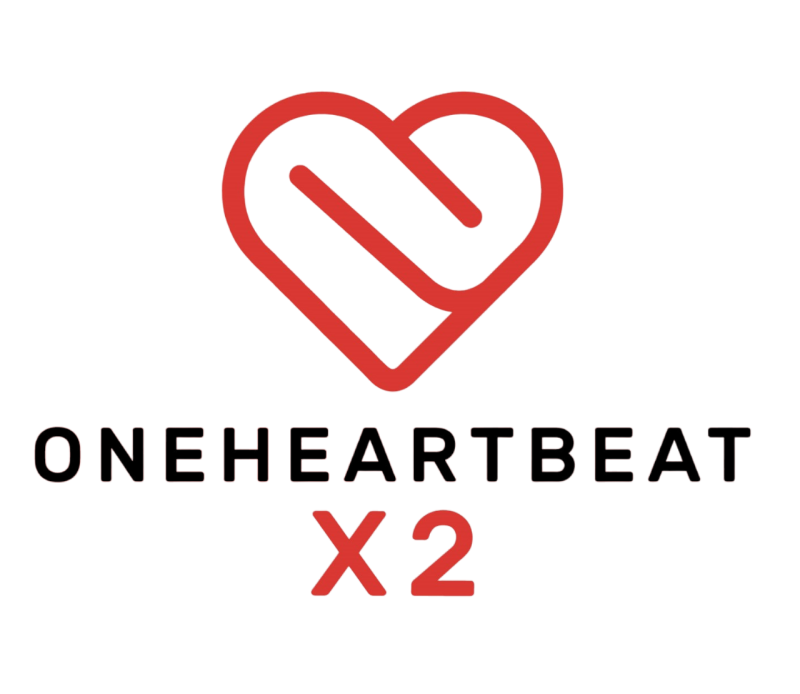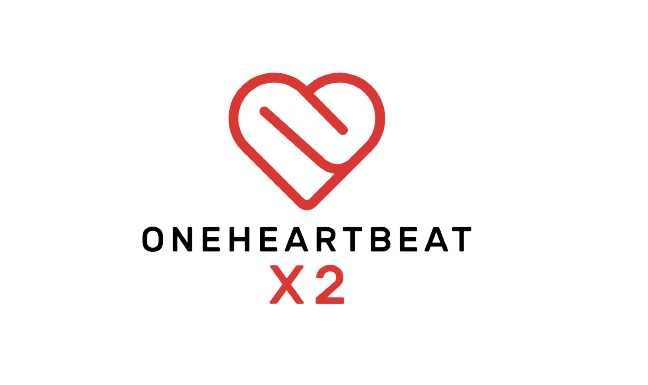Nutrion
informaton
Meal planning for healthier living.
Meal planning eliminates the need to rely on last minute unhealthy options or opting for unhealthy pre-packaged meals. When you plan your meals in advance, you save time and money by eliminating the need to run to the grocery store several times per week to pick up last minute ingredients. Planning ahead also allows you to cook things in bulk and freeze for a future meal or to use as part of a meal later in the week.
Making Your Meal Plan:
Your daily meals should consist of 3 main meals (breakfast, lunch & dinner) and 2 snacks.
Timing your meals in your plan:
Remember timing is also important when consuming your meals. So the question is how long should you wait after eating your meals? In optimizing your results I prefer that you follow the timing below:
- Main Meals (Breakfast, lunch & dinner): 2.5 hr – 3 hr waiting period before your next meal.
- Snacks: 1.5 hr – 2 hr waiting period before your next meal.

Foods to avoid for Fat Loss:
- Processed carbs: white bread, biscuits, cookies, chips, Kelloggs and other box cereals.
- Processed sugar & sugary foods: candy, chocolate, sodas, juices, canned fruits, and pastries such as muffin, donuts, scones, sweet buns…
Meal examples:
Breakfast:
- Oatmeal, 1 banana, 1 tsp honey & 1 or 2 tsp peanut/almond butter With 2 boiled eggs on the side.
- Protein breakfast shake: oats, banana/berries, honey, peanut/almond butter, 1 or 2 scoops of protein powder mixed with water.
- Egg sandwich: Fried eggs, whole wheat toasts, turkey bacon, avocado.
- Peanut butter/almond sandwich with banana and honey/fruit preserves added, side of eggs or protein shake.
- Greek yogurt with walnuts, banana/berries, fresh/dried fruit or honey.
Snacks:
- Nonfat Greek yogurt with granola and honey or fresh/dried fruit on top.
- Grapefruit or Banana with a handful of almonds/waalnuts on the side.
- Rice crackers with peanut/almond butter, honey/fruit preserves.
- Air popped popcorn, not the movie theater kind.
- Protein shake: 1 or 2 scoops mixed with water/almond milk/oat milk.
- 1 banana, 1/4 cup almonds/walnuts
Lunch:
- Chicken Breast/fish/lean meat with 1/2 cup brown rice and 1 cup green beans.
- Chicken Breast/fish/lean meat with 1/2 cup quinoa and 1 cup green beans or veggies.
- Chicken Breast/fish/lean meat with 1/2 cup brown rice and 1/2 cup black beans.
- Chicken Breast/fish/lean meat with 1 medium baked yukon gold potato/sweet potato and 1 cup green beans.
- Chicken Breast/fish/lean meat with 1 cup multigrain pasta, 1/2 cup black beans and 1 cup green beans.
Prepare your meals with the least amount of Oil, using only what’s needed for preparation. Also be mindful of your use of salt. Consuming salt in small amounts is preferred.
- Healthy Cooking Oils: Olive, Coconut, and Avocado.
- Healthy Salts: Sea Salt, Pink Sea Salt, and Himalayan Salt.
- Spring Water: Drink at least a gallon of water daily.
- Sauces/Dressings: Zero calorie hot sauce, Balsamic vinaigrette.
Essential elements of good balanced nutrition:
- Carbohydrates
- Proteins
- Fats
- Vitamins and Minerals.
- Water
Carbohydrates:
- Body’s main source of energy.
- Major source of nutrients for our bodies.
- Seated Help fuel our brain, kidneys, heart muscles and central nervous system.
Healthy carbohydrates:
- Sweet potatoes
- Quinoa
- Whole grain
- Legume
- Brown rice
- Oats
- Lentil
- Barley
- Potatoes
- Brown rice
- Jasmine rice
Proteins:
- Assist on repairing and making new cells.
- Help build and repair tissue.
- Essential for growth and development of our body.
- An important building block of bones, muscles, cartilage and skin.
Healthy Proteins:
- Fish
- Poultry
- Eggs
- Meat
- Beans
- Nuts and seeds
- Tofu and Soy (Non-gmo)
- Cheese (Be mindful of added process ingredients)
- Yogurt (Be mindful of added process ingredients)
Good Fats (monounsaturated fats and polyunsaturated fats are good fats to consider):
- Lower the risk of heart disease and stroke.
- Lower bad LDL cholesterol levels while increasing good HDL.
- Gives our body energy.
- Help support cell growth.
- Helps our body absorb some nutrients and produce important hormones.
Healthy Fats:
- Avocado
- Cheese (Be mindful of added process ingredients)
- Dark chocolate (Be mindful of added process ingredients)
- Whole eggs
- Fatty fish (salmon, trout, mackerel, sardines and herring….)
- Nuts
- Chia seeds
- Extra virgin olive oil
- Coconuts and coconut oil
- Full-fat yogurt
Vitamins and Minerals:
- Help support strong bones.
- Help strengthen our immune system.
- Converts our food into energy.
- Repair cellular damage.
- Used to make hormones.
- Help maintain a normal heart beat.
- Mineral and Vitamin Rich Foods:
Calcium
- Nonfat and low-fat dairy, dairy substitutes, broccoli, dark, leafy greens, and sardines
Potassium
- Bananas, cantaloupe, raisins, nuts, fish, and spinach and other dark greens
Fiber
- Legumes (dried beans and peas), whole-grain foods and brans, seeds, apples, strawberries, carrots, raspberries, and colorful fruit and vegetables
- flax seeds, chia seeds, hemp seeds.
Magnesium
- Spinach, black beans, peas, and almonds
Vitamin A
- Eggs, milk, carrots, sweet potatoes, and cantaloupe
Vitamin C
- Oranges, strawberries, tomatoes, kiwi, broccoli, and red and green bell peppers
Vitamin D
- Fortified milk and cereals, fatty fish
Vitamin E
- Avocados, nuts, seeds, whole-grain foods, and spinach and other dark leafy greens
Water:
- Lubricates the joints.
- Delivers oxygen throughout the body.
- Boosts skin health and beauty.
- Cushions the brain, spinal cord, and other sensitive tissues.
- Regulates body temperature.
- The digestive system depends on it.
- It flushes body waste.
- It helps maintain blood pressure.
- The airways need it to reduce the effects of asthma and allergies.
- It makes minerals and nutrients accessible.
- It prevents kidney damage.
- It boosts performance during exercise.
Spring Water: is one of the best possible water you can drink because it has been naturally filtered by the earth and it contains a majority of the trace minerals that our body needs.
Foods That Boost Your Immune System:
- Citrus fruits (grapefruit, oranges, clementines, tangerines, lemons & limes)
- Red bell peppers
- Broccoli
- Garlic
- Ginger
- Spinach
- Yogurt (Greek yogurt)
- Almond
- Sunflower seeds
- Turmeric
- Green tea and black teas
- Papaya
- Kiwi
Anti-Aging Foods:
Watercress
- Acts as an internal skin antiseptic.
- Increases the circulation and delivery of minerals to the cells, producing more oxygenation of the skin.
- May neutralize harmful free radicals, helping to keep fine lines and wrinkles away.
Red Bell Peppers
- Anti-inflammatory properties.
- Help protect skin from sun damage, pollution, and environmental toxins.
Papaya
- Helps to improve skin elasticity and minimize the appearance of fine lines and wrinkles.
- Contains a wide range of antioxidants that helps to fight free radical damage and may delay the signs of aging.
- May help your body shed dead skin cells, leaving you with glowing, vibrant skin.
Blueberries
- Contains an age-defying antioxidant called anthocyanin, which also gives blueberries their deep, beautiful blue color.
- Help protect skin from damage due to the sun, stress, and pollution by moderating the inflammatory response and preventing collagen loss.
Broccoli
- Helps with the production of collagen, the main protein in skin that gives it strength and elasticity.
Spinach
- Hydrating and packed with antioxidants that help to oxygenate and replenish the entire body.
- High vitamin C content enhances collagen production to keep skin firm and smooth.
- Contains vitamin A that help promote strong, shiny hair.
- Also vitamin K that help reduce inflammation in cells.
Almonds
- Great source of vitamin E, which may help repair skin tissue, retain skin moisture, and protect skin from damaging UV rays.
Avocado
- High in inflammation-fighting fatty acids that promote smooth, supple skin.
- High content of vitamin A in avocados can help us shed dead skin cells, leaving us with gorgeous, glowing skin.
- Carotenoid content may also assist in blocking toxins and damage from the sun’s rays and also help to protect against skin cancers.
Sweet Potatoes
- May help restore skin elasticity, promote skin cell turnover, and ultimately contribute to soft, youthful-looking skin.
- Helps protect our skin from harmful free radicals and keeps our complexion radiant.
Pomegranate Seeds
- Helps protect our body from free radical damage and reduces levels of inflammation in our system.
- Helps to preserve collagen in the skin, slowing signs of aging.
Foods That Enhance Athletic Performance:
Flax Seeds
- Reduces inflammation and supports many processes that contribute to cellular healing.
Beets
- Improves endurance.
- Helps lower blood pressure and increases the amount of oxygen delivered to the cells.
Pumpkin Seeds
- Reduces fatigue.
Brazil Nuts
- Stimulates recovery.
Berries (Black, Blue & Raspberries)
- Help preserve muscle strength as you age.
Salmon
- Reduces the inflammation that can happen with continual athletic activity.
Bananas
- Also protect against muscle spasms and cramps.
Dark Leafy Greens
- Rich in antioxidants, vitamins and minerals to boost your athletic abilities.
Sweet Potatoes
- They lower blood pressure, which is important for athletes to their heart health when participating in sports.
Oatmeal
- Good source of energy carbs for athletes and is high in fiber.
Coconut Oil
- Helps with metabolism and energy from fat.
Foods That Increase Libido:
Walnuts
- Improves the quality of sperm.
Strawberries, Raspberries, Sesame Seeds
- Helps the female body prepare for sex.
- Controls the testosterone level which is responsible for producing sperm.
Avocado
- Improves sexual energy and drive.
- Helps stabilize our body’s hormones.
Watermelon
- Improves your erection and increases your libido.
- Improves vascular health.
Almonds
- Improves circulation and relaxes blood vessels.
- Helps maintain an erection.
Eggs
- Helps improve erectile dysfunction.
Peaches
- Reduces infertility.
Coffee
- Stimulates the brain to heighten arousal.
Saffron
- Stimulates the brain to heighten arousal.
Steak
- Contains zinc, vitamin B, iron and protein. These compounds are essential for both men and women as they help improve the libido.
Gut Health
Some refer to our gut as our first brain or second brain, mainly because it can operate independently of the brain and spinal cord (the central nervous system).
A healthy gut contributes to a strong immune system, heart health, brain health, improved mood, healthy sleep, and effective digestion. It also may help prevent some cancers and autoimmune diseases.
Why are prebiotics important for our gut health?
They promote the increase of friendly bacteria in the gut, help to maintain a healthy digestive system and can even boost your immune system. Prebiotic foods have also been known to support a healthy metabolism and maintain overall good health.
Prebiotic Foods
- Apple cider vinegar
- Chicory root
- Dandelion greens
- Jerusalem artichoke
- Garlic
- Onions
- Leeks
- Asparagus
- Bananas
- Barley
- Oats
- Apples
- Konjac root
- Cocoa
- Burdock root
- Flaxseeds
- Yacon root
- Jicama root
- Wheat bran
- Seaweed
Digestive Health
Pineapple
- Pineapples contain a group of digestive enzymes called bromelain, which helps break down proteins into amino acids. Bromelain is also available as a supplement.
Papaya
- Papayas contain the digestive enzyme papain, which breaks down proteins into building blocks, including amino acids. Make sure to eat papayas ripe and uncooked, as high heat can destroy their digestive enzymes.
Mango
- Mangoes contain the digestive enzyme amylase, which breaks down carbs from starch (a complex carb) into sugars like glucose and maltose. Amylase also helps mangoes ripen.
Honey
- Honey contains a variety of digestive enzymes, including diastase, amylase, invertase and protease. Just make sure to purchase raw honey, as it is not exposed to high heat. Processed honey may be heated, which destroys digestive enzymes.
Bananas
- Bananas contain amylases and glucosidases, two enzymes that digest complex starches into easily absorbed sugars. They are more active as bananas start to ripen, which is why yellow bananas are much sweeter than green bananas.
Avocados
- Avocados contain the digestive enzyme lipase, which breaks down fat molecules into smaller fatty acids and glycerol. Although lipase is made by the body, consuming avocados or taking a lipase supplement may ease digestion after a high-fat meal.
Kefir
- Kefir is a fermented milk beverage that contains many digestive enzymes, including lipases, proteases and lactases. These enzymes break down fat, protein and lactose molecules, respectively.
SauerKraut
- Sauerkraut is a type of fermented cabbage that is rich in many digestive enzymes. The probiotic properties of sauerkraut may help ease digestive symptoms.
Kimchi
- Like sauerkraut, kimchi is another dish made from fermented vegetables. It’s fermented with bacteria of the Bacillus species, which tend to add enzymes, such as proteases, lipases and amylases.
Miso
- Miso is a popular seasoning in Japanese cuisine that’s made by fermenting soybeans. It’s fermented with the fungi koji, which adds digestive enzymes, such as lactases, lipases, proteases and amylases.
Kiwifruit
- Kiwifruit contains the digestive enzyme actinidain, which helps digest proteins. Moreover, consuming kiwifruit may ease digestive symptoms like bloating and constipation.
Ginger
- Ginger contains the digestive enzyme zingibain, which is a protease. It may aid digestion by helping food move faster through the digestive tract and boosting the body’s own production of digestive enzymes.
How are probiotics beneficial to our gut health?
Probiotics are live bacteria and yeast that naturally live in our body. Our bodies are filled with good and bad bacteria. Its essential that we maintain a balance in order to live a healthy life. Probiotics are good bacteria that are very important for our digestion. It’s also a good thing to know that these helpful bacterias work all over our body and can be good for our physical and mental health.
Probiotic Foods
- Yogurt
- Kefir
- Sauerkraut
- Tempeh
- Kimchi
- Miso
- Kombucha
- Apple cider vinegar
- Olive (cured in brine)
- Pickles
- Traditional buttermilk
- Natto
- sourdough
- Fermented dairy
Mucus fighting foods
Pineapple
- Reduces the swelling and mucus production and helps to clear both upper and lower respiratory congestion.
Grapefruit
- Helps with the breaking down excessive mucus.
Lemon and Lime
- Helps expel mucus and support immune function.
Garlic and Onion
- Helps to break down mucus and support our immune function.
Apple cider vinegar
- ACV is very antibacterial and helps to break down mucus congestion. I only use an organic, unpasteurized ACV (Bragg brand). If you like the taste, add a teaspoon to your herbal tea.
Oily fish/nuts (walnuts, pumpkin seeds, flaxseeds)
- Omega-3 rich nuts and fish like salmon, tuna, herring and sardines are good sources of protein to reduce mucus. Omega-3’s support immune function and reduce inflammation and are a good choice to reduce your mucus load.
Spices
- Adding spices in your meals like cumin, ginger, cayenne, chilli, turmeric, oregano, thyme, sage and cinnamon can help with the expelling of mucus.
- Heat helps to thin and expel mucus
Soups/herbal teas help break up mucus and flush our system of toxins and promote hydration (ginger, turmeric, chamomile and peppermint etc…).
Foods to avoid
High sugar, processed foods should be avoided because they obstruct immune function and promote inflammation.
Dairy and soy products should be avoided because they promote the forming of mucus within the human body.
It would be best to avoid canned and processed fruit and vegetables as they offer little to no benefits towards strengthening the immune system against mucus. Fresh whole foods should be consumed instead.
*Everyone is different, and what works for one person may not work for you.
*Please seek the help of a medical practitioner in the case of serious or ongoing symptoms. The above information is not intended to replace medical advice or treatment.
Incomplete & Complete Protein Foods
Animal proteins are the richest food source for complete proteins, but there are also options for vegetarians and vegans. Of course, there is no right or wrong way to consume complete proteins, whether you’re a meat-lover or vegan, as long as you are eating enough complete proteins.
Non-meat complete proteins:
- Fish
- Dairy (like milk, yogurt, and cheese)
- Eggs
Plant-based complete proteins:
- Quinoa
- Soy
- Buckwheat
- Hemp
- Chia seed
- Spirulina
- Tempeh
- Amaranth
What is an incomplete protein?
Your body creates 13 of the 22 amino acids on its own. These are the non-essential amino acids. A complete protein has the non-essential amino acids plus the nine essential amino acids that need to be eaten. An incomplete protein has only some of the nine essential amino acids.
Combining incomplete proteins to make complete proteins:
- Whole grain pita bread and hummus
- Peanut butter on whole grain toast
- Spinach salad with nut and seed toppings
- Oatmeal with pumpkin seeds or peanut butter
- Lentil soup with whole grain slice of bread
Preferred Teas & Coffees:
Consume only if directed to.
Green Tea – Benefits:
- Fights allergies
- Reduces body fat
- Improves skin health
- Helps to fight cancer
- Keeps blood sugar levels in check.
Black Tea – Benefits:
- Lowers cholesterol levels
- Eliminates free radicals in the body
- Aids in weight loss
- Keeps digestive tract healthy
- Boosts immune system
Dandelion Tea – Benefits:
- Supercharge liver health
- Boosts energy levels
- Fights urinary tract infections
- Speeds up fat metabolism
- Balances blood sugar
- Soothes bloating and other digestion issues
- Shows anti-cancer potential
Ginger Tea – Benefits:
- Anti-inflammatory
- Reduces blood pressure
- Aids in weight loss
- Ease headaches and migraines
- Antioxidant rich
Black Coffee – Benefits:
- It’s known as a catalyst for weight loss.
- It contains 0-5 calories, fat, or cholesterol
- It contains antioxidants that may improve health and reduce the risk of several diseases.
Cold drinks (Healthy alternatives)
Consume only if directed to.
Iced Tea:
- You can use any kind of tea, such as green tea, black tea, ginger tea… Making your own iced tea is a great way to control the amount of sugar in your drink. When sweetening your tea, use healthy sweeteners instead of sugar, such as: Grade A Maple syrup, AgaveHoney…
Infused Sparkling Water:
Healthy and refreshing
- All it takes is simply placing pieces of desired fruit into a jar of sparkling water. You can drink it right away, but I recommend that you allow it to sit in the refrigerator for a few hours so that the sparkling water becomes more nutrient rich.
Iced Coffee:
- Healthy iced coffee is made with cold coffee, almond milk and without any added sugar
Supplements according to meal plan:
Digestive Enzymes
- Digestive enzymes are proteins that break down larger molecules like fats, proteins and carbs into smaller molecules that are easier to absorb across the small intestine. Without sufficient digestive enzymes, the body is unable to digest food particles properly, which may lead to food intolerances.
When to take Digestive Enzymes:
- Digestive Enzymes should be taken just before you eat. That way, they can do their work as food hits your stomach and small intestine.
Maca Root Powder
- Increases Libido. 2. Increases Fertility. 3. Reduce Erectile Dysfunction. 4. helps reduce Menopausal Symptoms. 5. Improve your Mood. 6. Boost Performance and Energy. 7. Reducing Blood Pressure. 8. Fight Free Radicals. 9. May improve Learning and Memory. 10. May reduce prostate size.
How To Take Maca Root Powder:
- Blend a teaspoon of maca root powder into your coffee, shakes, cereal, soups, or your favorite beverage.
Apple Cider Vinegar
- Made from fermented apple juice with several health benefits to offer. Some of these benefits include weight loss, lower blood sugar, and healthier cholesterol levels.
Weight Loss –
- 1-2 tbsp a day in 4-6 oz water in the morning or before bed or as a salad dressing to help with weight loss.
Blood Sugar –
- 2-4 tbsp mixed in 6-8 oz mixed in water just before a meal to help control blood sugar.
Cheat Meal –
- 1 tbsp mixed 4-6 oz water after a cheat meal to decrease fat storage.
MCT Powder
- Healthy fats made from coconut oil that helps with weight loss, increase energy levels and improve brain power.
- Can be used in both hot and cold drinks without the need of a blender.
Protein Powder
- Promote muscle gain and improve performance and recovery.
- Also prevent muscle loss and may help increase muscle mass during weight loss.
Branch Chain Amino Acids (BCAAs)
- BCAAs are a group of three essential amino acids (leucine, isoleucine, and valine).
- They are essential, meaning they can’t be produced by your body and must be extracted from food.
- Supplementing with BCAAs can help build muscle, decrease muscle fatigue and alleviate muscle soreness.
When To Take BCAAs:
- 15 minutes before a workout or during/after your workout to prevent further fatigue.
If used between meals, consume 1 1/2 to 3 hours after your last meal.


